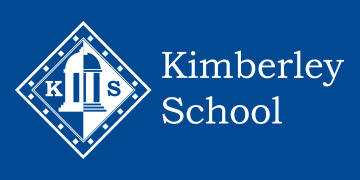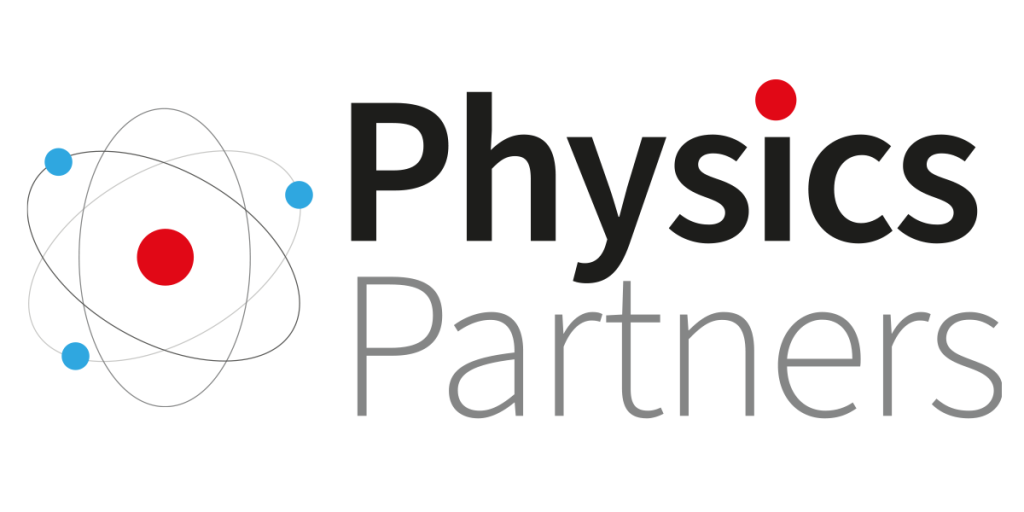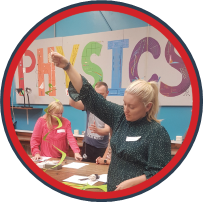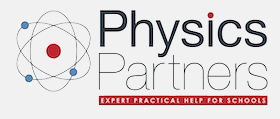


** EVENT CANCELLED **
Unfortunately we have had to cancel this event. Please keep an eye out for another similar event next academic year
Join us for a day of physics workshops, ‘speed dating’ physics, and a topical keynote at East Midlands Festival of Physics on Saturday 29th June, 9.15am – 3.00pm. Generously supported by The Ogden Trust at The Kimberley School (NG16 2NJ), this full day of training and workshops will include sessions for all secondary teachers of physics, including ECTs and trainees. Technicians are also welcome. Lunch and refreshments are included, and you will leave with access to all festival resources!

Sessions will include hands-on practical activities and ideas for making your teaching even more engaging, all delivered by expert physics teacher trainers . We are looking forward to a fascinating keynote from Professor Philip Moriarty, titled: ‘Where Atoms meet AI: Quantum Physics, ChatGPT, and GCSEs’. There will also be a chance to network with colleagues from across the region and browse exhibition stands showcasing nationally and locally available resources, as well as physics equipment and suppliers. All attendees will be given the chance to enter our free equipment raffle!
Booking for this event is now live and will close on Thursday 20th June. Please make your three workshop preferences when you book. and we will do our best to accommodate your choices. Please find full programme details below, followed by the booking form. We are asking for a contribution of £10/person towards the cost of this event. There is the option to request an invoice upon booking. You may find this letter template useful for asking your school to pay the £10 fee.
Programme
09.15 Registration and refreshments
09:45 Introduction and Quiz
10:00 Keynote Lecture
10:55 Session One Workshops
11:50 Session Two Workshops
12:45 Lunch and refreshments
13:30 Session Three Workshops
14:25 ‘Speed Dating’ Physics
14:45 Raffle
15:00 Close
Workshop choices
| 1. Physics in the Dark | Neal Gupta | KS3, KS4 and KS5 | There are several areas in the GCSE Physics specifications where demonstrations and experiments need to be carried out in the dark. This workshop will focus on demonstrations and experiments that can be used to enhance or complement your teaching of these areas. The additional benefit is that many of these ideas can be put together easily and are low budget. Some of the topics we will be covering are: the electromagnetic spectrum, refraction, total internal reflection, fluorescence and electric fields. | Neal Gupta has been teaching since 1993 and has experience in four different schools. At his last school, he was Head of Physics, STEM Coordinator and Head of Upper School, an SLT role. Since 2008, Neal has also worked as a consultant for Institute of Physics supporting the teaching of physics primarily across the East Midlands and more recently as Regional Coordinator for Physics Partners. |
| 2. Physics for all: Top Tips for Inclusive Teaching with Marvin and Milo | Suzanne Woolhouse | KS3 and KS4 | This workshop will explore ways to make science and physics lessons more inclusive so that students feel included and have what they need to thrive. There will be plenty of hands-on everyday physics experiments to try and opportunities to think about relevant contexts and careers for different topic areas. | Suzanne Woolhouse, previously a Head of Science, has worked for IOP as a Professional Support Coach, most recently on the online DOMAINS programme, the Limitless campaign and Physics Central. |
| 3. Boost GCSE Science Exam Success: Mastering Required Practical Questions in Physics | Matt Brownhill | KS3 and KS4 | Feeling unsure about how to prepare your students for required practical questions in GCSE Science exams? This CPD session will equip you with the tools and strategies to: · Model Exemplar Responses · Boost student confidence in tackling required practical questions through targeted practice activities and feedback strategies. · Take your students’ exam preparation to the next level and ensure they excel in the practical component of their GCSE Science assessments. | Dr Matt Brownhill, Senior Director of Science for the Archway Learning Trust. Matt also runs sessions for SPN, Ogden and STEM Learning. |
| 4. Demonstrations that won’t break the budget! | Sarah Cottee | KS3, KS4 and KS5 | It is vital to show students phenomena which are difficult to conceptualise without a demonstration, but this is becoming increasingly difficult with cuts to educational budgets and a lack of departmental equipment. Come along to discover some quick and cheap practical demonstration ideas to entice your students. From forces, to particles, to technology, to springs! | Sarah Cottee, Subject Performance Leader for Physics at The Kimberley School. |
| 5. Planet Earth and our local neighbourhood | David Farley | KS3 and KS4 | This session will look at ways to teach the basics about the Earth and its place in the solar system. Using simple models (you will get to keep a set), the session will cover the teaching of all the basics from day / night, through to moon phases, the seasons, position of the sun, length of day light and much more. | David Farley has taught for over 30 years and has been Head of Physics, Head of Science and Deputy Head. He has also coached trainee science teachers at Edge Hill University. He now works for IOP as a Professional Support Coach and for Physics Partners as a trainer. |
| 6. Teaching the invisible; a make and take | Peter Tiktin | KS3 and KS4 | Teach students about the properties and uses of Infra-red with an IR transmitter and receiver. You will make these during this workshop and take them away for your own use. | Peter Tiktin, Consultant Coach for STEM Learning and IOP. |
| 7. Save planning and marking time with Isaac Physics | Ingrid Murray | KS3, KS4 and KS5 | Isaac Physics is a free online open learning platform to support the development of problem-solving skills in physics from 11 to university. This session will introduce you to the features of an Isaac Physics Teacher account and explore the many resources on Isaac Physics for secondary science teachers. | Ingrid Murray, Teacher Support Manager at Isaac Physics and an IOP-accredited Physics Teacher Educator. |
| 8. Discover the Power of Motion: Transforming Physics Education with the Go Direct Motion Sensor | Dan Roberts | KS3, KS4 and KS5 | See how versatile the ultrasound sensor is for aiding the understanding of physics phenomena, from acceleration to waves. This session will cover a series of experiments that will help you to enhance your student’s understanding, covering acceleration, graph matching, friction, falling objects, SHM and crumple zones. | Dan Roberts, Company Director of Instruments Direct. He is also a STEM Ambassador. |
Keynote: ‘Where Atoms meet AI: Quantum Physics, ChatGPT, and GCSEs‘ – Professor Philip Moriarty
It is now not just possible, but essentially routine, to image, move, and spectroscopically probe single atoms. Indeed, state-of-the-art nanotechnology involves the manipulation of matter with better than atomic precision – we can target (and break/form) single chemical bonds. This is achieved using a microscope like no other: the SPM (scanning probe microscope). This ability to not only see but prod, poke, push, pull, pick up, and/or put down individual atoms and molecules means that the world of quantum mechanics becomes tangible even at a GCSE level. I will discuss how we have used the Sixty Symbols project to bring quantum physics of this type to broad audiences (ranging from 5 to 85 years of age), and where this type of approach could potentially be adopted (and adapted) for GCSE teaching.
Professor Philip Moriarty is a Professor of Physics and EPSRC Established Career Fellow (2020-2025) in the School of Physics and Astronomy, University of Nottingham


